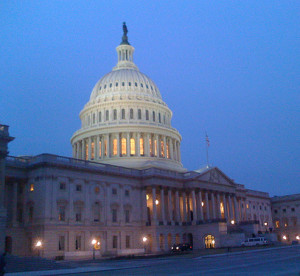[Alex Howard, Sunlight Foundation, Link (CC-BY)] Amidst unanswered questions about the future of open government in the United States, the Senate has provided a unanimous endorsement of a set of enduring principles that the Sunlight Foundation has advanced and defended for a decade: that data created using the funds of the people should be available to the people in open formats online, without cost or restriction.
On Dec. 10, 2016, S.2852, the Open, Public, Electronic, and Necessary (OPEN) Government Data Act, passed the Senate with an amendment by unanimous consent. The OPEN Government Data Act has been a core priority of the Sunlight Foundation in Washington in 2016. We are thrilled that the Senate has acted to move it and grateful to the bill’s co-sponsors for their support for open government.
“I’m proud to work across the aisle with Senator Schatz to bring a 21st century solution to this city’s antiquated, 20th century approach to data,” said Sen. Ben Sasse, R-Neb., in a statement. “Because transparency keeps Washington accountable to the people, government data should be made public unless an administration makes a compelling reason not to. After passing the Senate with bipartisan support, we have momentum to carry this important work into the new year.”
“Public information belongs to the public, and it’s the government’s job to make sure that data is available and easily accessible in today’s ever-changing digital world,” said Sen. Brian Schatz, D-Hawaii, in a statement, “I thank Senator Sasse for working with me to get this through the Senate, and I look forward to continuing our work in the next Congress.”
The bill requires government data assets to be published as machine-readable data in an open format that does not limit reuse and imposes a condition that no costs will be imposed.
In keeping with Sunlight’s years of advocacy, the bill requires the White House Office of Management and Budget to oversee the completeness and availability of an enterprise data inventory for every agency. That work is ongoing today, as everyone in the public can see at the Project Open Data Dashboard. The OPEN Government Data Act will ensure that the work continues.
This approach to transparency and accountability will not only inform and enhance public knowledge and apply data to improve society. It will improve the ability of agencies to understand and use the information assets they hold. The data breaches and compromises of the past decade show how important it is for agencies to understand what data they hold and its sensitivity. That’s why the OPEN Government Data Act’s requirement for the Chief Information Officers Council to work with the newly strengthened Office of Government Information Services and the White House Office of Science and Technology Policy to “promote data operability and comparability of data assets across the government” is welcome and essential. So to is the act’s requirement for the White House Office of Management and Budget to continue to “assess the extent of each federal agencies use of data assets to support decision-making cost savings and performance.”
If enacted and signed into law, these measures would be directly relevant and useful to advancing the goals of the Evidence-Based Policy Commission in 2017. We hope that Speaker of the House Paul Ryan sees and values this connection swiftly to institutionalize this sensible, bipartisan approach to improving government and governance. Given the Congressional Budget Office’s assessment of no cost to taxpayers from the OPEN Government Act, there is strong rationale to get this one.
Given the demand from commercial requesters using the freedom information act to search for data, we hope and expect that open data from a new FOIA.gov will be used to prioritize the structuring and disclosure of open data using the vehicle that the OPEN Government Data Act mandates: Data.gov. The act would also preserve Data.gov as a public interface for the nation’s open data, which is in of itself a valuable mandate, particularly given the site’s improvements and approach to federation.
The OPEN Government Data Act is an essential complement to the Freedom of Information Act reform that passed this summer. Together, the legislation would provide statutory structure and mandatory requirements for open and transparent government in the 21st century.
If passed and implemented, the two laws put in place a series of provisions and structures that will enable Congress, journalists, nonprofits, academics, private-sector companies and the public to hold future administrations accountable. We and our allies know that executive orders and memorandums can be undone with the stroke of a pen. Sunshine laws cannot be so easily untangled nor dismissed.
For this reason, we both celebrate the Senate’s unanimous endorsement of the law and hope that the U.S. House will quickly move to re-introduce the bill in the 115th Congress and work across the aisle to enact it within the first week of public business. We will hold Schatz and Sasse to their word and expect the members of Congress who stood up for open government data this fall to continue do so. Sunlight stands ready with our allies to hail congressional support for open government in the 21st century, and to hold our legislators and official accountable for following through on this mandate.





